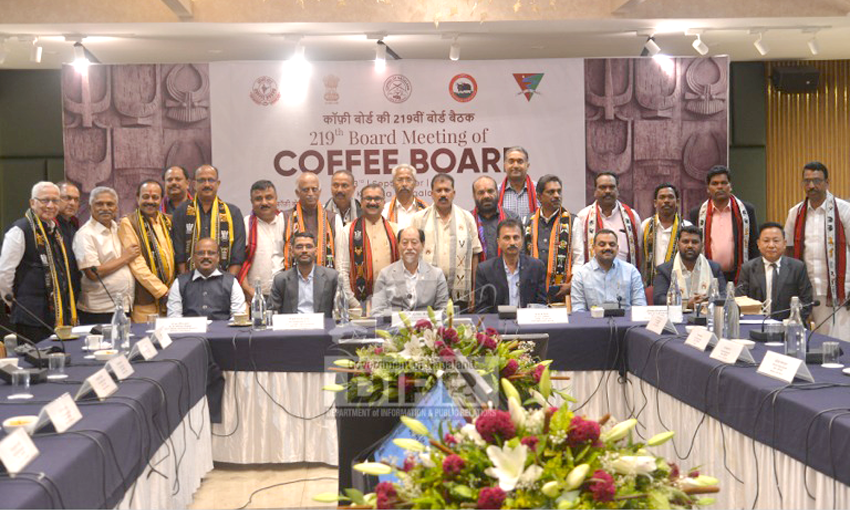The 219th Coffee Board Meeting with Chief Minister Dr. Neiphiu Rio, hosted by the Department of Land Resources, was held today at Vivor Hotel, Kohima.
Addressing the members of the Coffee Board of India, Chief Minister Rio recalled that coffee plantation in Nagaland had first started in the 1980s with the support of the Coffee Board. However, he said the initiative failed not because of the farmers, but because the Coffee Board “could not manage it.” Now, with the Coffee Board once again extending support to the Department of Land Resources in regrowing coffee, Rio expressed hope that Nagaland would be able to produce significant quantities of coffee in the years ahead.
He highlighted that the state has potential for coffee plantation in more than 10 lakh hectares, and with the national vision of Viksit Bharat 2047, coffee could become an identity for Nagaland. Alongside coffee, Rio also noted that farmers in the state cultivate a variety of exotic fruits such as avocados, persimmons, kiwis, dragon fruits and pineapples, which add to the state’s agricultural strengths.
Touching upon broader economic challenges, the Chief Minister said that the unresolved Naga Political issue continues to deter investment in industries in the state. Citing past examples, he mentioned the failure of the Nagaland Paper Mill at Tuli, despite being partnered with the Hindustan Paper Corporation, and the collapse of the Dimapur Sugar Mill due to congestion and lack of sugarcane cultivation areas. He said these failures resulted in wastage of valuable raw materials, such as bamboo meant for the paper mill.
Download Nagaland Tribune app on Google Play

Rio, however, stressed that the state still has abundant local resources, including petroleum, natural gas, rich mineral deposits, and mountains of lime and marble. While acknowledging that industrial revival may take time, he asserted that the most viable sector for Nagaland at present is farming. “If farmers can utilize their soil and land for coffee production, Nagaland can produce organic coffee, especially as the state prohibits the use of chemical fertilizers,” he said.
He further urged the Coffee Board members to not only hold meetings but also undertake field visits, interact with farmers, motivate them, and provide training for producing quality coffee beans. He also called for support in providing nursery plantation materials.
The programme was chaired by Kurma Rao M, IAS, CEO/Secretary, Coffee Board. During their three-day visit to Kohima, the Coffee Board members will meet with different stakeholders and undertake field visits to coffee plantation farms.

